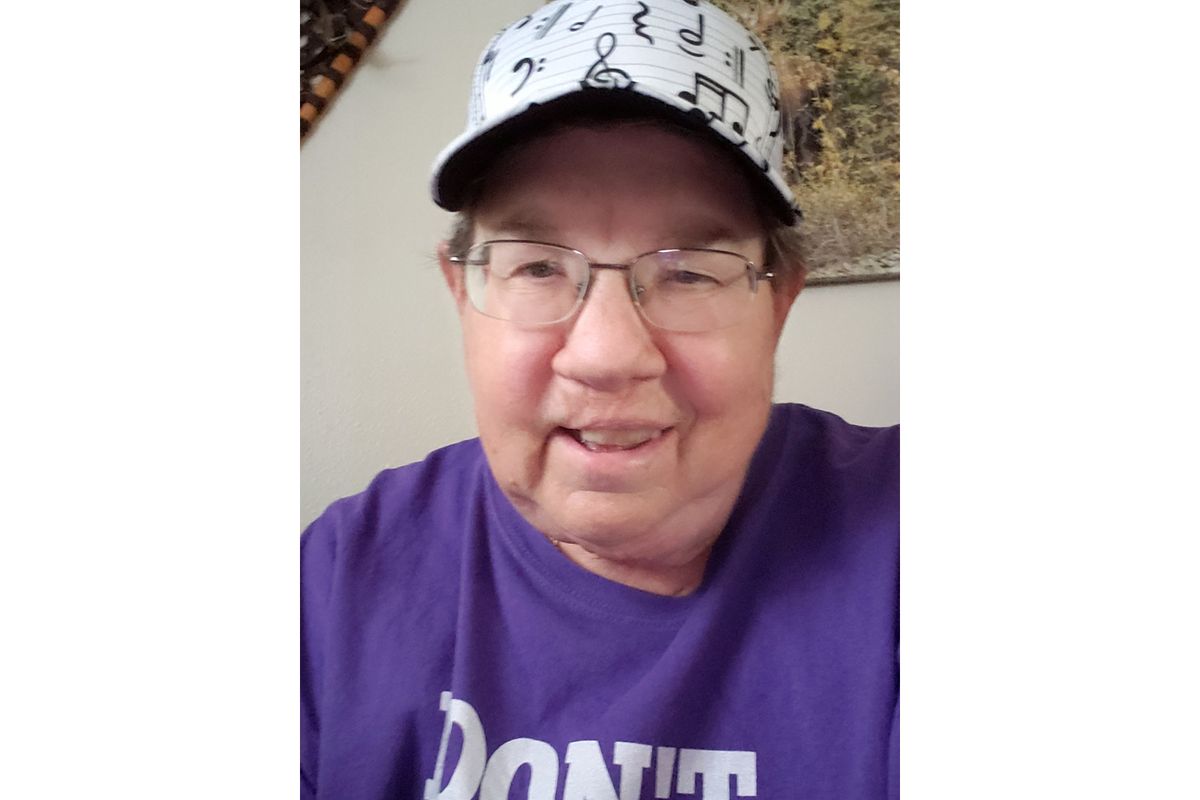I was an active 40-year-old — working, bowling, camping, doing all the fun stuff — when I found out I had intraductal carcinoma in situ, the earliest stage of breast cancer. I was told I needed to have a mastectomy, so that's what I did. They removed my right breast, and everything was good for a while.
Then, six months later, I found a lump in my left breast. Although that ended up as benign, it was still a scare. Breast cancer is in my family on my father's side, and both my grandmother and my great-grandmother died of it.
In 2000, I had another scare. And, although the doctor told me that it wasn't cancer, he would have to remove the ducts. I requested he perform a mastectomy instead, so it wouldn't be in the back of my mind. No more breasts, no more worries. I would be good to go!
I continued living my life for 16 years with no problems. And then in 2016, I found a lump on my chest wall. I didn't have any breasts, so I thought it must be a cyst. But I was wrong. I had an ultrasound on the lump in March 2016 and was told within a few minutes that this time, it was cancer. I had breast cancer with no breasts!
Even more shocking was that an MRI revealed the cancer had spread, so it was now considered stage 4 metastatic breast cancer. This meant that my cancer would never go away. Now, not only was I shocked and devastated but really angry as well — shocked that I could get breast cancer after having a mastectomy and angry that I got it again.
The uncertainty of it all left me feeling scared, depressed and nervous. I remember wondering how I possibly could get through this another time. Where was I going to get the strength?
No matter whether breast cancer is metastatic or in the early stages, you feel scared, alone and, at times, hopeless because you have no control over the disease or what is going on. I think the doctors try to make you feel like you have some amount of control, but suddenly you're in this whirlwind of appointments and procedures, one right after the other. It made me feel like I wanted to stop the world and get off so that I could catch up both mentally and emotionally to what was going on. Logically, I knew procedures were being done that needed to be done, but everything was just happening so fast.
I know doctors can be busy, but I don't know if they realize how emotionally draining waiting for appointments or surgery can be. You are dealing with the shock, the anger and the other myriad emotions you feel when you're told you have breast cancer.
All I could think about when I was diagnosed was how long I would Iive. I constantly worried if it would come back, where it would come back, and when it would come back. Every ache or pain that was new, I wondered if it was cancer.
In January 2017, as I was undergoing my radiation treatments, I saw a pamphlet for a group called Hope Held by a Horse. When I was a child, I loved horses. I lived on a little farm and had my own horse. I was in a riding club — the Saddlettes — and I rode drills in the county fair and parades throughout Colorado. So, I decided to participate in the program. The program provided just the support I needed by making me feel safe and important and validating that my feelings mattered. Working with the horses helped me get back into my head and back in touch with myself and helped me find a sense of peace.
Getting support helped me to not just exist throughout this breast cancer experience, but to fully live and be a part of life. It gave me the tools to process my feelings and understand what to do with my anger, my guilt and any feelings that came up. To this day, if I am struggling emotionally, I know that I can close my eyes, go back in my mind to being with the horses, and use the tools that I was taught to help me process where I am at that very moment.
I finally realized that I will never get my life before cancer back. After four years, I have come to terms with the fact that I have metastatic breast cancer. It has been a long journey, but one from which I've grown immensely. Do I still fear the cancer coming back somewhere in my body? The answer is yes, but it has not taken over my mind and soul. Will I be scared to death if it does? Again, the answer is yes. How will I deal with it? I don't know because each cancer diagnosis is new, and you never know how you will handle it.
I go to the doctor every three months now, have PET and CT scans every six months, and have monthly blood work because of the systemic chemotherapy. But, although cancer will always be a part of my life, I have learned to not let it rule my life.
Now, with the coronavirus pandemic, I don't go anywhere except to get medications. I get tired of being inside, but on the other hand, I sometimes feel like I have agoraphobia because I'm afraid to go anywhere. I feel much safer staying home.
I'm thankful for being in remission for four years. I always live with a certain amount of fear in the back of my mind, but I try not to have it affect my daily life. Most of the time, I'm successful!
This resource was created with support from Daiichi Sankyo and Sanofi Genzyme.






